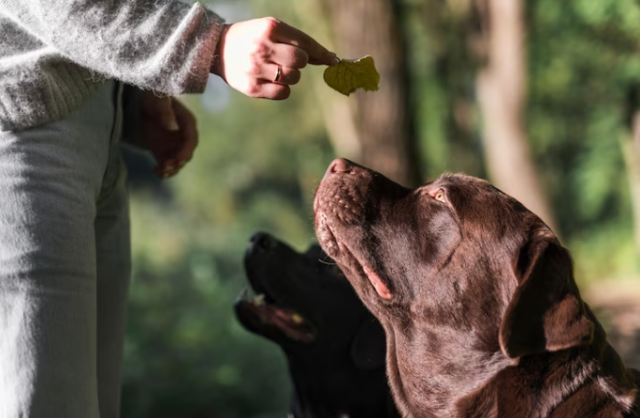Introduction
Finding the finest best dog food for seniors is essential because as our beloved companions become older, their nutritional requirements alter. Senior dogs may preserve their health, vigor, and general well-being by receiving a balanced meal designed just for their needs. This article will go over the important factors to take into account when selecting the finest dog food for senior dogs and will highlight some of the greatest suggestions for keeping your senior dog companion happy and healthy.
Understanding Senior Dog Nutrition
Age-Related Changes in Dogs
Dogs’ metabolisms slow down as they get older, and they could become less active. If their diet is not changed to reflect their lower activity level, they may acquire weight. The nutritional needs of senior dogs vary as well because of changes to their digestive systems and general health.

Essential Nutrients for Senior Dogs
It’s critical to choose a senior dog food that provides the nutrients required to sustain their aging bodies. The following essential nutrients should be found:
- Protein: For the purpose of preserving lean muscle mass and promoting general health, high-quality protein sources are crucial. Look for dog diets that contain identified animal proteins, such as those from fish, beef, or chicken.
-
Healthy Fats: Omega-3 fatty acids are beneficial for senior dogs as they support brain health and promote a healthy coat and skin. Look for dog foods that include fish oil or flaxseed as a source of omega-3s.
-
Joint Support: Senior dogs are more prone to joint issues such as arthritis. Look for dog foods fortified with glucosamine and chondroitin, which can help maintain joint health and mobility.
-
Digestive Health: Senior dogs may experience digestive issues, so it’s important to choose dog foods that are easily digestible and contain prebiotics or probiotics to support a healthy gut.
Top Recommendations for Best Dog Food for Seniors
Feeding Tips for Senior Dogs
-
Consult Your Veterinarian: Before making any changes to your senior dog’s diet, consult with your veterinarian. They can provide valuable insights and recommend specific dog food options based on your dog’s individual needs.
-
Transition Gradually: When introducing a new dog food, do so gradually over the course of a week to avoid digestive upset. Start by mixing a small amount of the new food with the old food and gradually increase the ratio.
-
Monitor Your Dog’s Weight: Keep an eye on your senior dog’s weight and adjust the amount of food accordingly. Regularly weigh your dog and consult with your veterinarian if you notice any significant weight changes.
Conclusion
Choosing the best dog food for seniors is essential for maintaining their health and well-being as they age. By considering their changing nutritional needs and selecting high-quality dog foods tailored to seniors, you can ensure that your furry friend receives the necessary nutrients for a happy and healthy life.

FAQs
Q1: How do I know if my dog is a senior?
Dogs are generally considered seniors when they reach around 7 to 8 years of age, but this can vary depending on the breed and individual factors. Consult with your veterinarian to determine when your dog should be considered a senior.
Q2: Can I continue feeding my senior dog the same food as before?
While it may be easy to continue feeding your dog the same food that they have been eating for years, it is crucial to reevaluate their nutritional requirements as they become older. It is typically advised to switch to a dog food designed for older dogs as they need special nutrients to sustain their changing bodies.
Q3: Should I choose dry or wet dog food for my senior dog?
Both dry and wet dog food can be suitable for senior dogs, and the choice often depends on your dog's preferences and specific health considerations. Wet food can be beneficial for senior dogs with dental issues or those who struggle to chew dry kibble. However, dry food can help maintain dental health and tends to be more affordable.
Q4: Are there any ingredients I should avoid in senior dog food?
Do not feed your dog any food that has a high filler, artificial preservative, or byproduct content. These additives have minimal nutritional value and may be difficult for older dogs to digest. Select dog meals with few additives, natural ingredients, and high-quality components.
Q5: How often should I feed my senior dog?
In general, senior dogs benefit from two meals a day, but the precise feeding pattern may change based on your dog's particular requirements and any advice from your veterinarian. To promote digestion and weight control, it's crucial to have a regular meal schedule.
Read also
- Dog Food Storage Container 40 lbs: Keeping Your Pet’s Nutrition Fresh and Secure
- The Shiba Inu Pitbull Mix: A Fascinating Crossbreed
- Find the Best Dog Food for Your German Shepherd
- Tough Dog Toys: Durable Toys for Your Pup | Buy Today
- Stop Your Dog’s Paw Chewing Habit Now! Effective Solutions Revealed
- Effective Strategies to Stop a Dog from Jumping Up on Strangers
- The Ultimate Guide: How to Stop a Dog from Jumping Up | Expert Tips
- Discover the Enchanting Teddy Bear Dog Breed: A Perfect Companion for All Ages
- Stop Dog Barking: Effective Techniques to Prevent Barking at Other Dogs
- Your Pitbull’s Skin Allergies Can’t Wait!
- Chihuahua: Breed Info, Characteristics, Temperament, Lifespan, Grooming, Training
- Dog First Aid Kit: Essential Supplies for Your Canine Companion
- Stop Your Dog Jumping Habits with These Effective Techniques
- Discover the Enchanting Feist Dog Breed: A Blend of Tenacity and Intelligence
- Puppy Barking: Understanding and Managing Your Furry Friend’s Vocalizations
- Wishbone Dog Breed: A Perfect Companion for Any Home
- Top 10 Must-Have Dog Camping Gear for Your Next Adventure
- Best Dog Food for Pitbull Puppies: A Guide to Nourishing Your Furry Friend
- Effective Ways to Give a Dog a Pill When He Refuses to Eat
- Best Dog First Aid Kit: Ensuring Your Canine Companion’s Safety and Well-being





